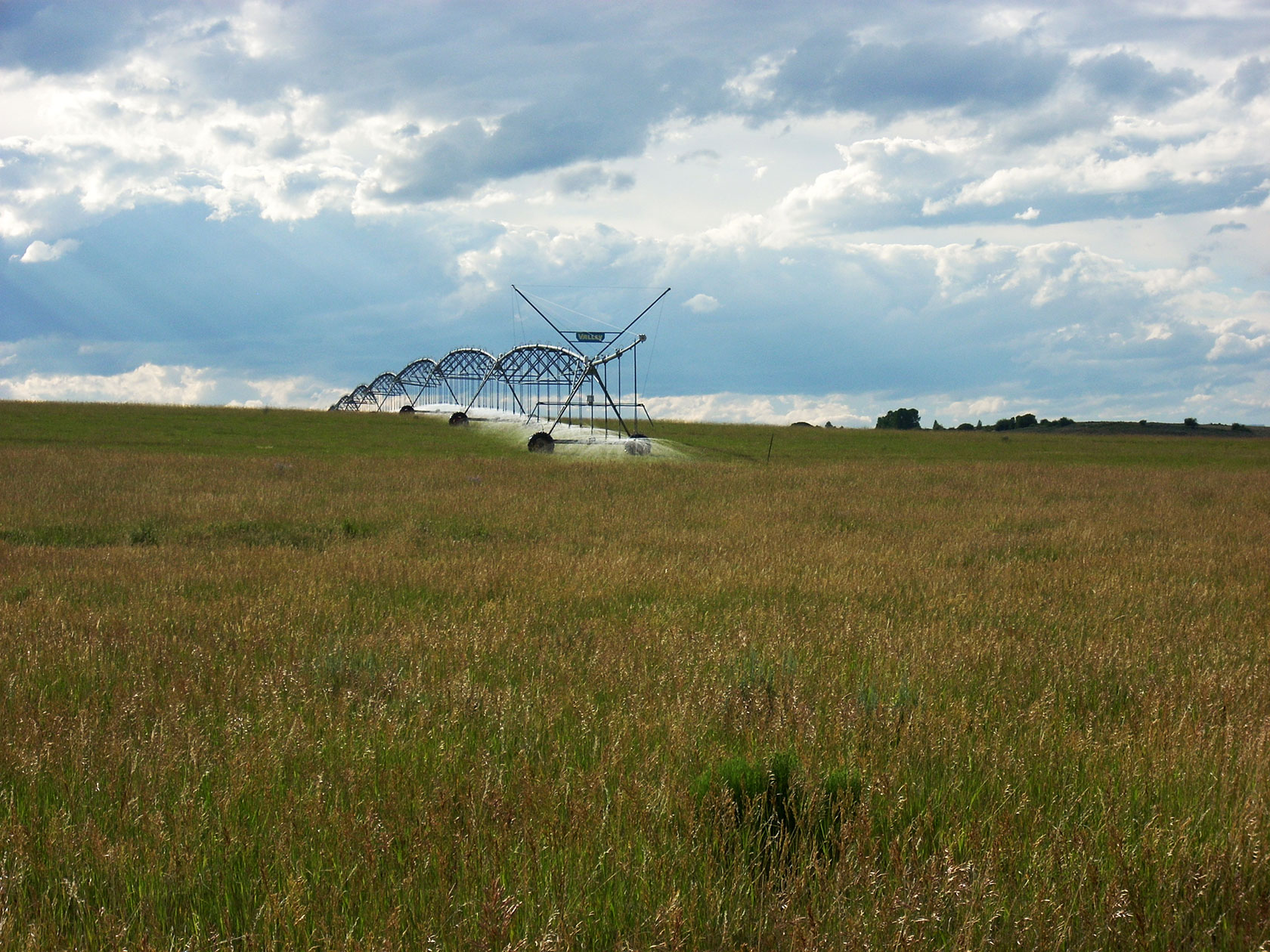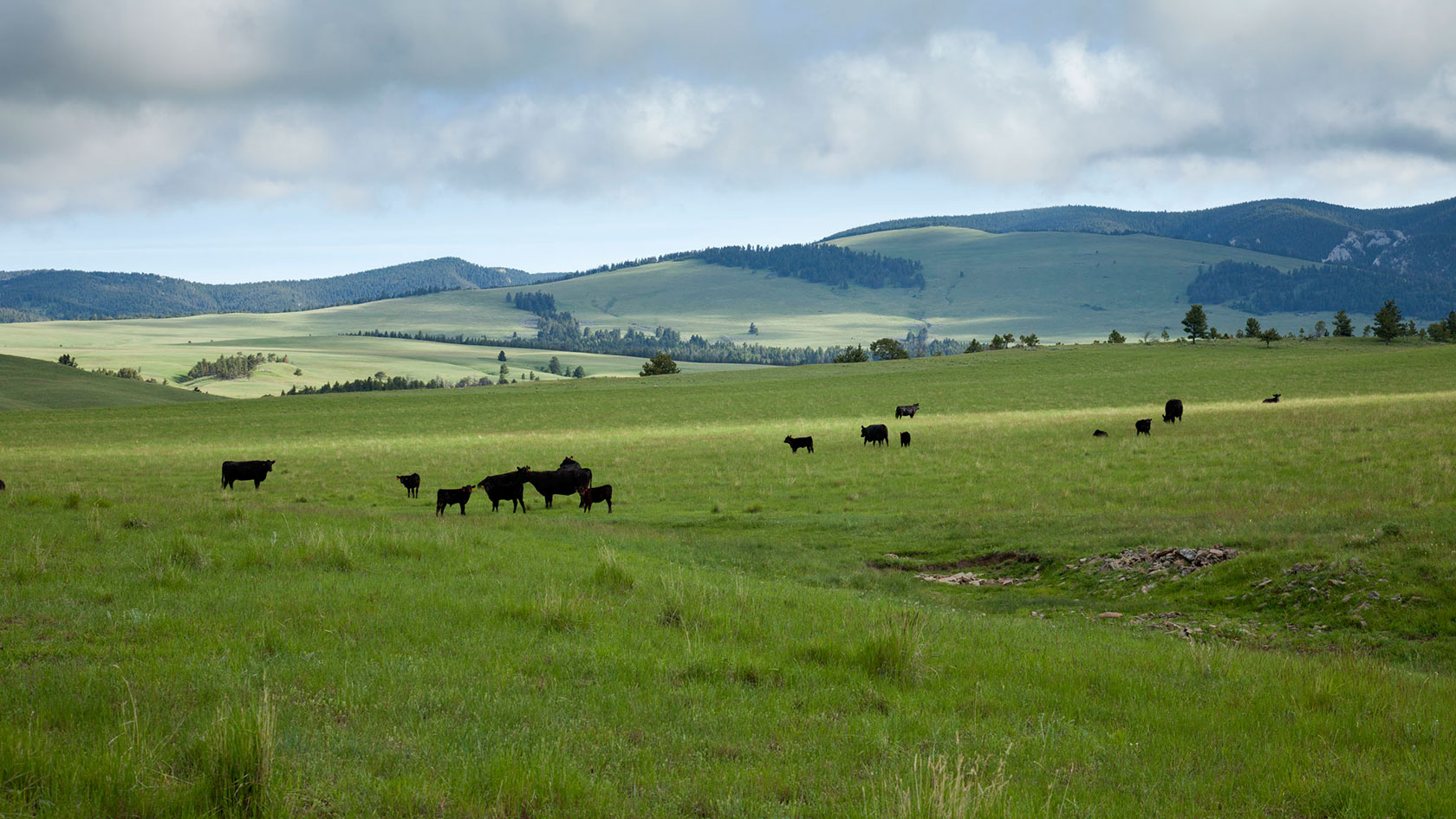Since the Great Recession, and with the advent of near-zero interest rates, we encounter more buyers who are looking for income producing ranches and farms.
In the early years of Live Water Properties, the buyers we worked with always wanted to know the expenses—taxes, insurance, etc.—associated with ranches they were considering, but often they were relatively unconcerned about those expenses. They were looking for a retreat, a place to recreate, a venue to spend time with family and create memories, or a combination, and they were willing to pay for it. Many of our buyers still have this mind set, and it’s a good—even necessary—approach when buying a strictly recreational type of ranch.
However, in recent years, more and more often buyers are saying, “I have money to invest. I don’t want to hold cash—it loses money after inflation and is a guaranteed non-performing asset. I hate bonds—they pay almost nothing and will lose value when interest rates rise. I also hate stocks—I’ve hated them since 2008, and now they’re at all-time highs.” In other words, these buyers are not looking at a ranch as an expense item—part of the cost of enjoying life—but as an investment that is an alternative to (and having value not correlated with) other possible investments.
It would be easy to assume that the sole advantage of income producing ranches and farms is . . . the income. But there is much more to it than that, and many ranches produce only a small net income, yet are still prime investments. Here are some of the considerations:
Property Taxes
It is important to earn or preserve agricultural property-tax status. Property-tax rules vary from state to state, but in Wyoming, where I work, qualified agricultural land is taxed not on its market value, but rather on its production value—the presumed value of the agricultural products that can be produced. The difference can be stark: the property tax on a good-sized ranch worth several million dollars might be similar to the tax on an ordinary house in a nearby town. Of course, if you lose your ag status, you pay the much higher rate not once, but every year.
Income Tax Deductions
If your ranch is recognized by the IRS as a business—i.e. as an entity intended to produce a profit (not that it has to produce a profit every year)—you suddenly have a blizzard of deductions that you can take against your ranch operating income. Some of these are expenses that you would incur even if you didn’t run a business on the ranch, such as property taxes, insurance, mortgage interest, and upkeep. In addition, you can deduct expenses for legal and accounting fees, contractor services, salaries and wages, equipment purchase and maintenance, lease fees, irrigation district fees, vehicle mileage—any expense that is reasonable and customary for the operation of your business.
Corporate Structures
If you run a business, you are eligible—and wise—to segregate your ranch assets, income, and expenses from your personal finances and from any other entity that you own or control. This helps you demonstrate to tax authorities that you are running a real business and not just indulging a hobby. It can also significantly help protect your other assets from claims against your ranch by creditors or litigants.
Ranches are often held as partnerships, limited-liability companies (LLCs), or S-Corporations. These may sound horribly complicated and expensive, but they don’t need to be. For instance, in Wyoming you can form a single-member LLC for $100 by filling out a brief form online with the Secretary of State’s office. With an LLC, net income flows directly to your tax return via Schedule C, so the income is always taxed in the year received. (Net losses can be taken against other income.) With an S-Corp, the income also flows to the shareholders as ordinary income, but you have some ability to “meter” the flow—with the downside that you need to file a separate return. For more information, seek a qualified professional advisor. In Wyoming, real-estate brokers are prohibited from “unauthorized practice of law,” to which I add “unauthorized practice of accounting.” However, all of our Live Water brokers maintain expert layman’s knowledge of these subjects as they pertain to real estate so that we can help clients identify areas in which they might want to seek professional counsel.
Having a ranch in a corporate structure is often helpful—and frequently used—in estate and succession planning, as current shareholders can convey shares to members of younger generations over time. This is a matter that particularly requires expert advice. Many who have tried to manage such processes on their own have come to regret their unadvised decisions.
Ranches are often held as partnerships, limited-liability companies (LLCs), or S-Corporations. These may sound horribly complicated and expensive, but they don’t need to be. For instance, in Wyoming you can form a single-member LLC for $100 by filling out a brief form online with the Secretary of State’s office. With an LLC, net income flows directly to your tax return via Schedule C, so the income is always taxed in the year received. (Net losses can be taken against other income.) With an S-Corp, the income also flows to the shareholders as ordinary income, but you have some ability to “meter” the flow—with the downside that you need to file a separate return. For more information, seek a qualified professional advisor. In Wyoming, real-estate brokers are prohibited from “unauthorized practice of law,” to which I add “unauthorized practice of accounting.” However, all of our Live Water brokers maintain expert layman’s knowledge of these subjects as they pertain to real estate so that we can help clients identify areas in which they might want to seek professional counsel.
Having a ranch in a corporate structure is often helpful—and frequently used—in estate and succession planning, as current shareholders can convey shares to members of younger generations over time. This is a matter that particularly requires expert advice. Many who have tried to manage such processes on their own have come to regret their unadvised decisions.
Land Management
Ag production and wildlife habitat can be maintained and even enhanced through proper production practices. Fields and meadows that have historically been irrigated and farmed or grazed by livestock can become degraded if left unused. Live Water Properties has a Landowner Services Division and staff to help clients develop optimal management plans.
Types of Operation
The owners of an income producing ranch often have a number of choices. Do-it-yourselfers—and there are many of them in our client base—may choose to run their own cattle herd (with or without hired help) or maintain and operate equipment to raise hay or other crops. Others may invite a rancher to bring in cattle to graze the owners’ property for an agreed-upon fee (usually expressed as an amount per animal-unit-day on the property), with the understanding that the landowner will manage the cattle. Others will lease out the property and have no involvement, requiring the lessee to manage the livestock, maintain fences, control weeds, etc. Many production ranchers desire to lease land so they can expand their herds without incurring the financial risk of acquiring more real estate. With considerate notice to current and former partners, a ranch owner may change the arrangement from time to time to suit personal and land-management needs.
With regard to hiring employees or contractors, it is usually a question of scale: with a small operation, ranch owners will not be able to hire help and still produce net income; as operations get larger, owners simply can’t do all the work themselves. Prospective buyers who know they will need help with ranch work will want to consult their brokers and advisors to “run the numbers” and ensure that the type of operation they envision makes sense financially.
Capital Gains
In addition to income, there is the prospect of capital appreciation. Over reasonable timeframes, land almost always increases in value, especially if it is managed well and improved over the short or long term. If the time comes for owners to sell a ranch that has appreciated, they may be able to defer capital-gains taxes indefinitely by reinvesting in another business property through an Internal Revenue Code Section 1031 exchange. The replacement property could be another ranch, or it could be a farm, an apartment block, a warehouse, a condo, or an office building—almost any real estate involving a business operation. The details of §1031 exchanges are far beyond the scope of this article. Suffice it to say that they require expert legal counsel and involve strict time limitations.
A Real Life Example
A few years ago, I helped a family sell a ranch that had extensive irrigated crop fields. Because they’d had the property for many years and had significantly improved the production capacity, it had appreciated greatly, and they stood to realize a substantial capital gain. But they were on the horns of a dilemma: Because they’d paid so little for the ranch and had increased its output, they were making over 30% per year on their original investment—after paying all expenses, including the salary of a full-time manager. My wish for the readers of this article is that they may have a chance to encounter such a dilemma in their adventures in ranch real estate.
In conclusion, I urge those thinking about a ranch purchase to consider income producing ranches for the reasons enumerated above. The financial benefits may well outweigh the additional management considerations.





